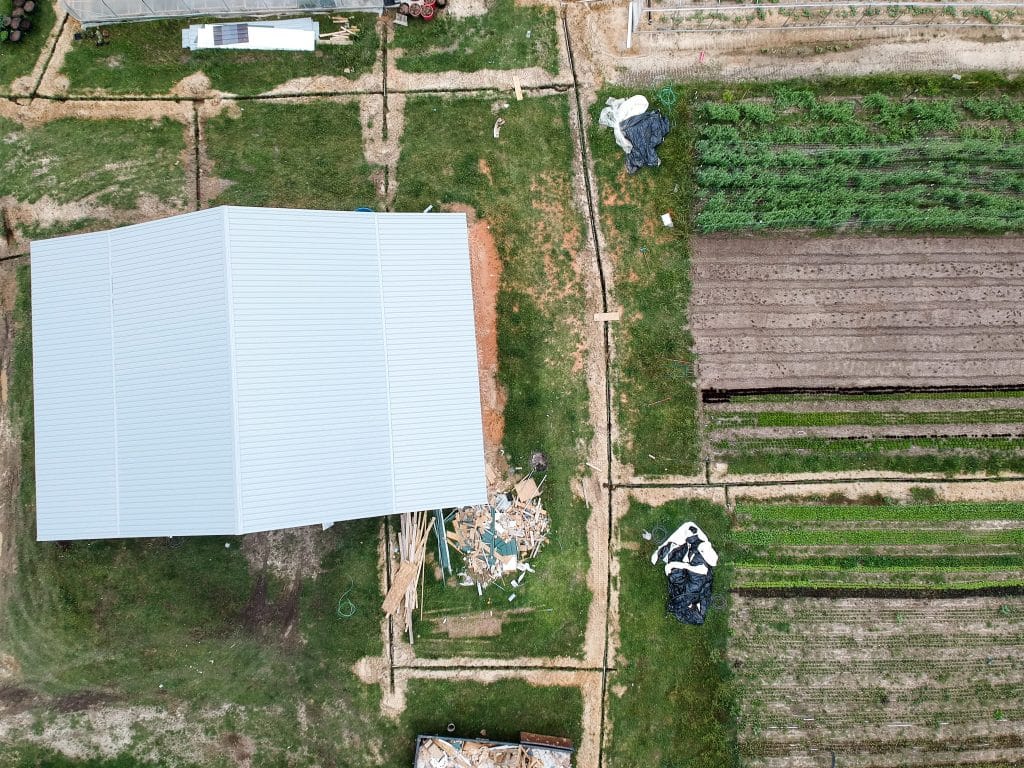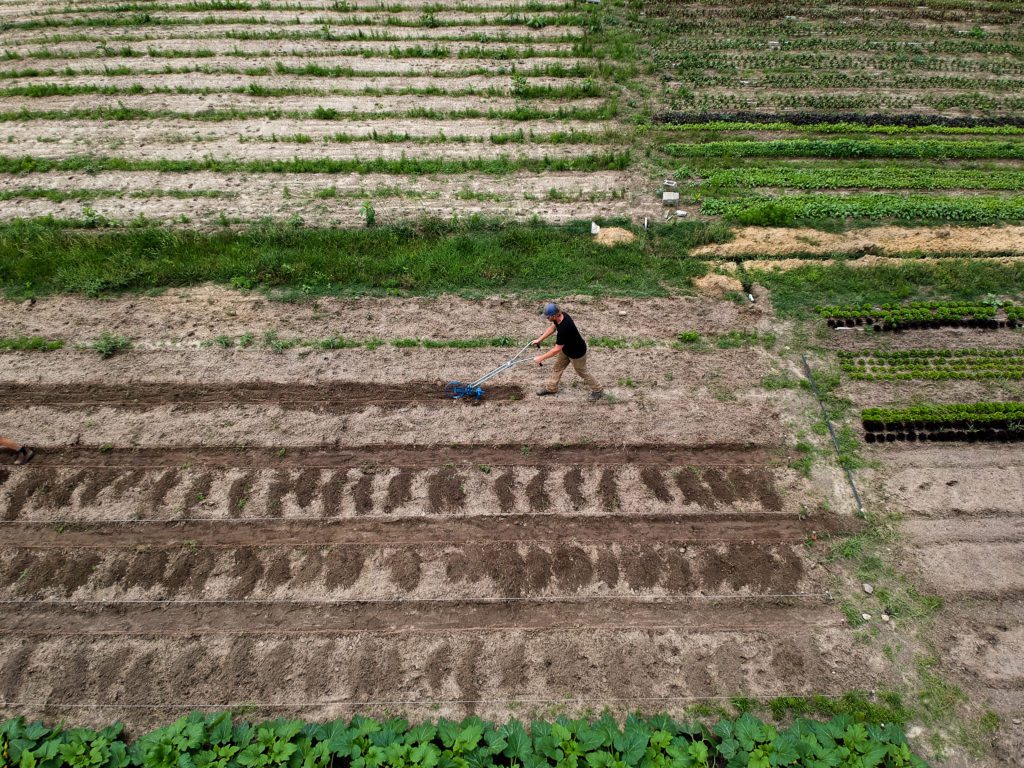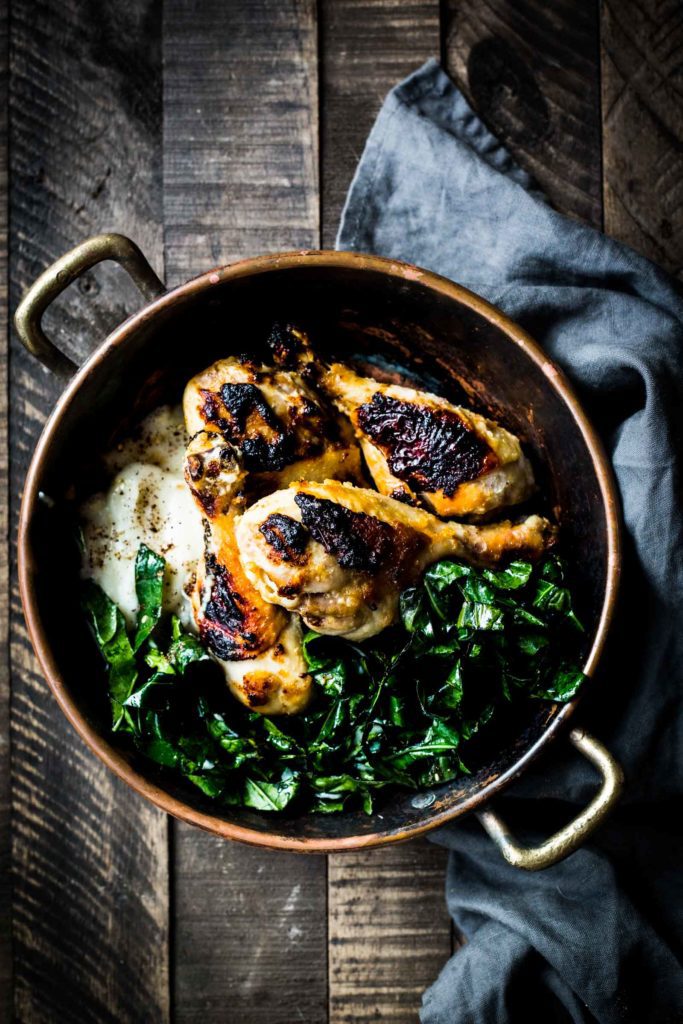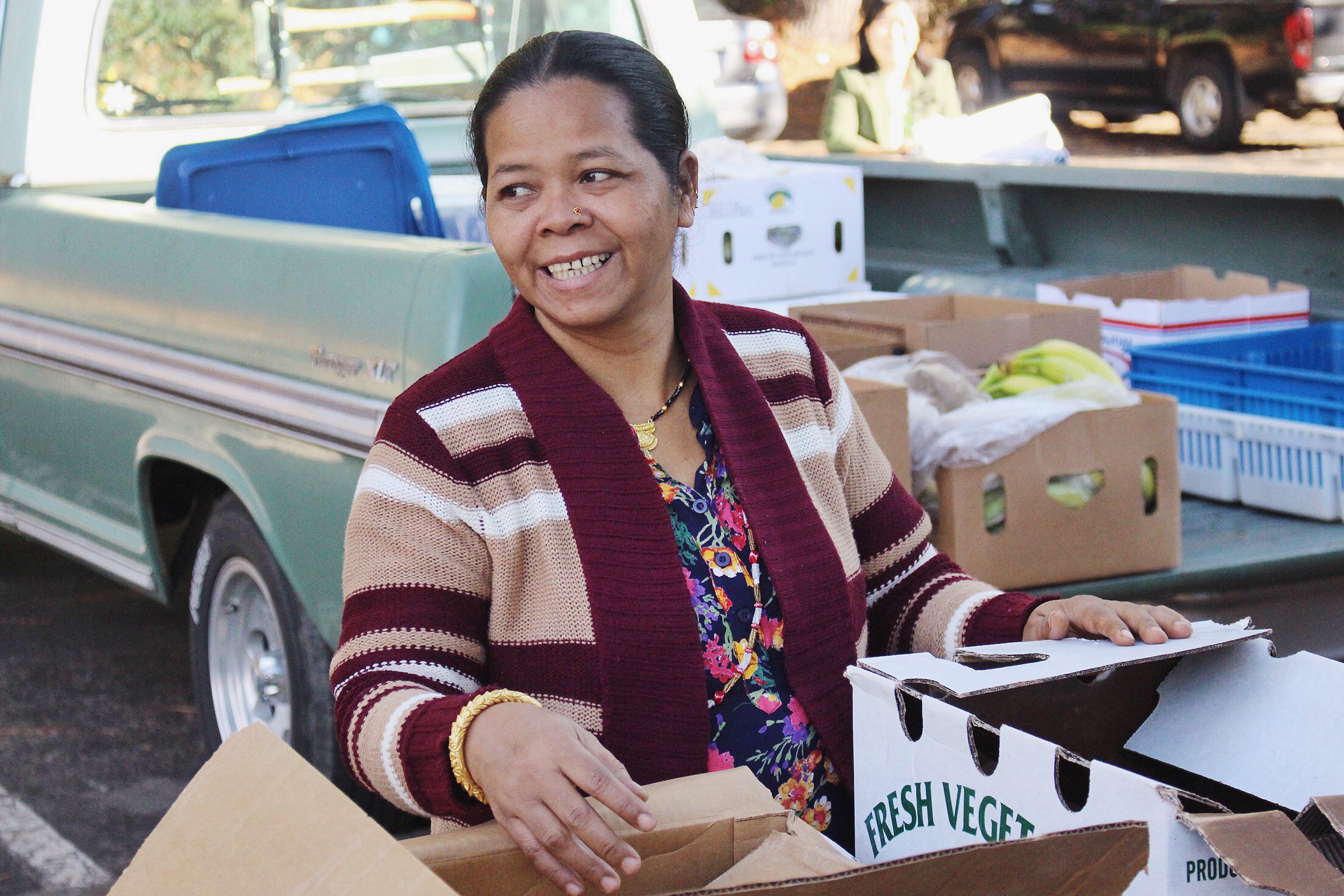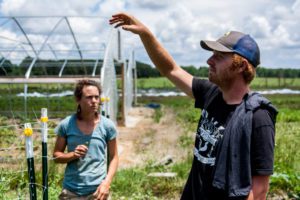
Husband and wife duo, Josh Plymale and Jessica Legendre, are millennial entrepreneurs. Their startup doesn’t involve the latest tech, IPO dreams, or venture capital investment. At the height of the digital age and technological mechanization, this team chose to start a farm. But you won’t find any GPS guided tractors or weed zapping lasers at Row by Rowe farm. In fact, you won’t find any tractors or motorized farming equipment at all. They operate using an ancient limited-soil-disturbance practice called no-till farming.
Josh and Jessica learned to farm independently, started co-managing Elm Street Gardens in Sparta and got hitched along the way. After a couple years in Hancock County, they realized it was best to start their own venture together, applying what they had learned at Elm St. to a two acre plot near Newnan Georgia.
I set out early from Clarkston on a one-hour trek south of the city and ended up winding along dirt roads through thick forest. The road spit me out at the edge of a big field where I saw the outline of a newly built barn in the distance. Their small plot is on the edge of 1000 acres of cattle land. I caught Josh and Jess out in one of their fields.
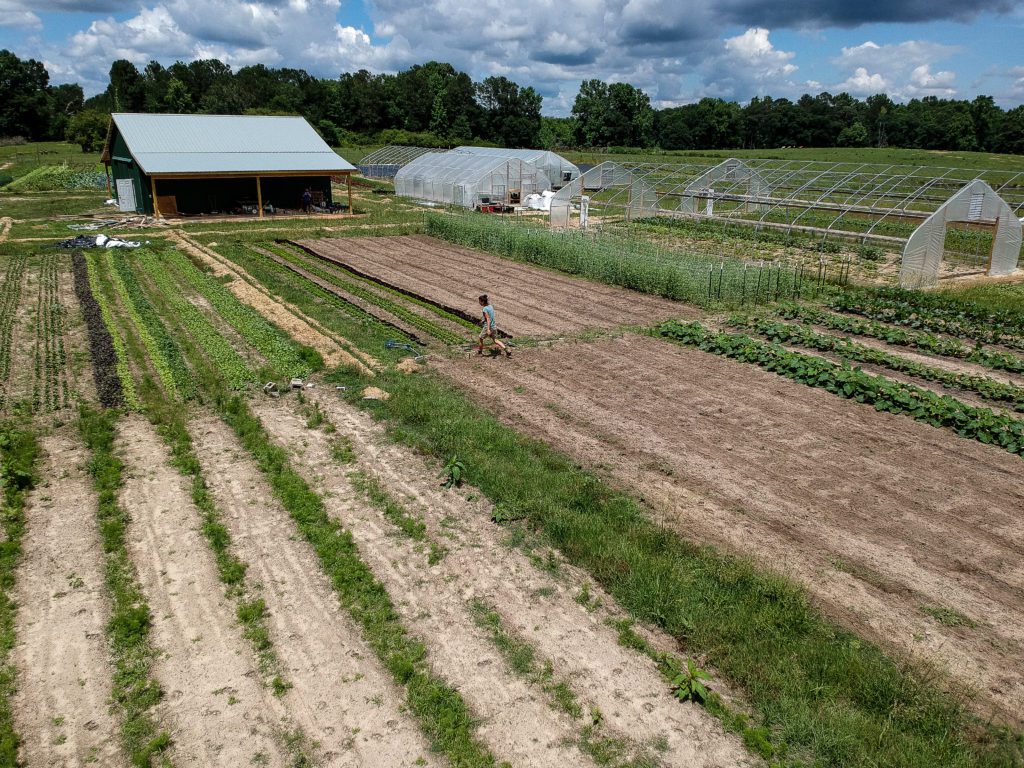
JOE: Nice piece of land; this place is coming along! Tell me, how’d this thing get started?
JOSH: We first started dating when Jess was apprenticing at Serenbe and I was at Burge. At the time, her uncle had said, “If you ever wanted to come out here, I’ve got a spot picked out that would be perfect for you to start up a farm.” And it seemed like she kind of took it with a grain of salt; she didn’t really take him that seriously.
JESS: But in June of 2016, before we got married, my grandma died. So my mom and uncle were figuring out estate stuff. Every time we talked on the phone they would ask me, “What are you gonna do? Do you want land?” And finally, in November, Josh called me and was like, “I can’t be at Elm Street anymore.” He was living with his mom. So I called my mom and said, “We’d like some land.”
JOSH: Once we got the actual approval of the family, we pretty much dove into the USDA loan process.
JOE: How did that process work out for you?
JOSH: We worked on a business plan for about three weeks and put together a budget. The USDA was fantastic; their experience with organic was unprecedented. We asked for a large chunk of money that encompassed 90% of our costs, and they approved us for a low interest loan that’s a part of their young farmer program.
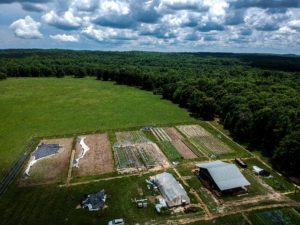
JOE: Was it difficult to become organically certified?
JESS: That part was really simple for us. We got certified back in November, and at that point, there was nothing here but strawberries and garlic. Since we hadn’t added anything yet and only planted two things, it was really easy to show that nothing had been sprayed. So the certification process was good – the inspection went well, and the paperwork beforehand was a lot easier to do because we didn’t have to go through tons of history.
JOE: Yeah, what’s the story behind the land?
JESS: The land has been in our family for at least 100 years. Twenty or thirty years ago they grew a cash crop on it every year. My great-grandfather was born here, and that’s as far as we know. His house was that one on the left (pointing).
JOE: With all that history, did you suspect this is where you would end up?
JESS: No. My whole life I said I was never going to live in Georgia. When we moved to Elm Street, we were kind of teetering, and then we both decided that this would be the perfect place to be. There’s so much history here.
JOE: What non-financial resources did you tap into to get your farm started?
JOSH: It sounds crazy, but Instagram has been big for us. People are showing their techniques and tools on Instagram, so there’s all this information floating around. And these same people trying out no-till methods are writing full books about it too.
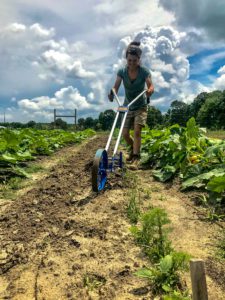
JOE: Tell me about your no-till methodology. Seems like a lot of extra work and barely anyone else is doing it. What makes this a preferable system for you?
JOSH: When you till, you’re inverting the soil, which causes disruption to all the microbial activity, earthworms and organisms. If you treat it right, that whole network over time really becomes a labor force for you. We want to build that, not interrupt it.
JESS: All the root systems of the plants we put in the ground work together kind of like an underground highway system. Beneficial bacteria and fungi travel on the root systems, eating as they go. As they eat, they determine if a plant is low in any nutrients. If they find a deficiency, the fungi will run the necessary nutrient to the plant to make sure its food source continues to thrive so that they can also thrive. No-till is creating a place for that to happen.
JOE: Whoa! It’s like a little world down there. What are some things that surprised you about starting your own farm?
JOSH: How long everything takes! Having the right tools for the job is another big issue. Sometimes we’re in the middle of a job and realize we have to go to Lowe’s to get a tool. The closest store is 25 minutes away. In the beginning, it felt like we were going every day. Also, working with engineers and electricians and the builder and coordinating all these people who have agreed to a timeline, but aren’t meeting it, has been a surprise. So, yeah, the building process was pretty challenging.
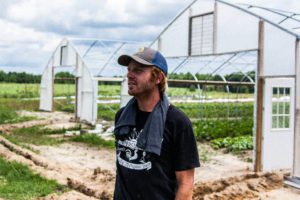
JOE: What are you excited about growing this summer?
JOSH: Cucumbers and tomatoes! We’ve also got some blueberries and blackberries that we planted in November. It’s really young and it’ll produce very little this year, but we’re excited about it.
JESS: I think we’ll try our hand at some summer lettuces. Yeah, we like lettuce.
JOE: What would you want to say to Fresh Harvest customers about the summer season?
JESS: This is the time of year everyone’s going on vacation. But [for us], this is go-time. We’ve taken the winter to rest, so this is now our time to shine and be really proud of all the things that are coming out of the ground. Everything’s the juiciest, the sweetest, the most colorful. There’s nothing better than a warm strawberry, freshly harvested. It’s the brightest, juiciest, sweetest. It’s the best time of year to eat!
JOSH: Everything peaks in July. August is just hot – it’s the pits man. It’s hard to transplant or direct seed something when it’s 95 degrees. You can’t put anything in the ground at that temperature and convince it to say, “Hey, this is comfortable!”
It’s been a fun ride following Josh and Jessica from Elm St. Gardens to Row by Rowe. Getting to see our farmers take a leap into entrepreneurship is an experience we’re excited to share with you. One of the best ingredients of food is the story that goes into making it. Every time you eat one of those warm strawberries, we hope your experience is made all the richer through being a part of the story behind it.
